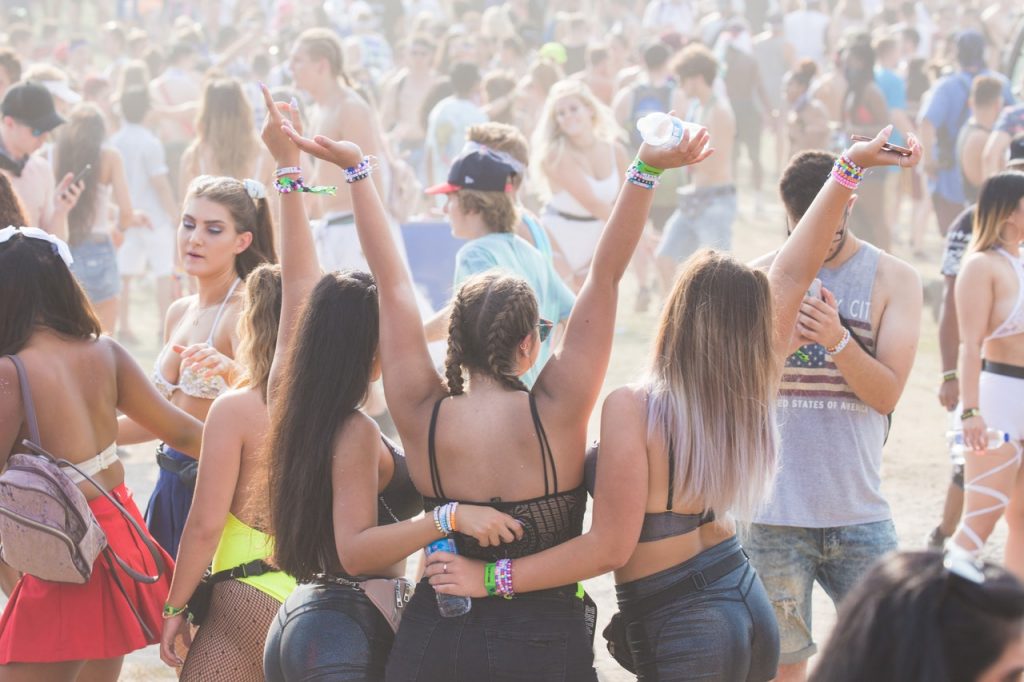


There is truth to the expression, “One rotten apple spoils the whole barrel.” That’s because ripe apples produce ethylene, a ripening agent. When you store apples together, the ethylene prods other apples to ripen further and eventually rot.
It takes a single apple to start a domino chain that ruins the rest of the bunch. And guess what? The same holds true for drug users. You’re very likely to abuse drugs when you hang out with people who abuse drugs. Not because of weak morals, but because of several mechanisms that we’ll cover in this article.
The initial decision to use drugs or alcohol is voluntary for most people. However, repeated use changes the brain in ways that make it hard to quit, even for those who want to. Those recovering from a long term substance use disorder have a higher risk of drug use, even after years of leading a sober life. This is especially true if they’re dealing with mental health problems or are hanging around places or people connected to the addictive behavior.

Friends or family members, who participated in the addictive behavior, are potential triggers for relapse, irrespective of whether or not they’re still using drugs. That’s because they bring back the memories of addiction. In some cases, they may ask you to go out or even tell you stories and share images of their happy moments in your absence. All these can lead you back to addiction.
But relapse is not the only way friends can contribute to drug addiction. This article will discuss different ways friends can worsen your drug use problems. But before we do, let’s look at the relationship between peer pressure and drug use.
Social scientists who study peer pressure see it through the lens of social learning theory. According to this theory, when people observe other people’s behaviors and reactions using addictive substances, they may wish to replicate what they saw. For example, an agitated friend walks into the room.
They then sniff cocaine or smoke meth. After a few minutes, they’re relaxed and fun to be around. The person observing all this will know that the drug is a good way of coping with stress – because it’s what they’ve seen. So, any time they feel stressed or agitated, they may use the drugs to calm down.
Social learning is the most common way that people learn. When you observe your friends abusing drugs, you become more likely to try out drugs too. That’s because you have learned through observation that drugs achieved a positive result. You could also use drugs out of a need to be part of the group.

Human beings have a strong need for social interaction. So, it becomes critical to consider the compelling social nature of many addictions. Most addictions need at least the cooperation of other people. And as the addiction progresses, the chances of a person interacting with healthy, non-using individuals become slimmer.
That’s because family and friends eventually disengage. At the same time, addiction takes up most of the addict’s time. In the end, the addict’s entire social circle is dominated by role models associated with the addiction.
Negative peer pressure can be divided into two parts:
Direct negative often involves peers or friends directly asking you to try something, like abuse illegal drugs. It may be difficult to say no, especially if you are young and are concerned about how they’ll think of you. In some cases, they may hint that you’d be “uncool” if you didn’t take part or even provide reasoning that’s hard to argue against. The fear of losing friends or facing mockery can make you yield. Direct negative peer influence includes your friends or peers:

Indirect negative is a subtle type of peer pressure and isn’t as apparent as direct negative. It happens when you try out drugs or alcohol just to fit in. Your friends don’t encourage you to participate in risky behaviors, but you feel pressure to do so to continue being part of that social group. Indirect negative peer pressure includes things like:
An NIH study assesses the group influences on an individual’s drinking and other drug use at clubs. A total of 368 social groups representing 986 people were anonymously surveyed. The study found that social groups had a definite impact on the individual outcome.
Group members seemed to know about other members’ drug use or drinking patterns, which were related to their drinking and other drug use. This suggests that normative patterns are established for the group, and social modeling happens within the group.

Not all peer pressure is bad. Friends can influence you into making the right choices. Positive peer pressure is when friends bring a good change in your life – and this can be a useful tool in addiction treatment. In fact, many treatment facilities use this strategy to influence patients’ behavior. The same way a person in a drug-using circle uses drugs to fit in is the same way a person in a sober circle will want to stop using to fit in.
If you or someone close to you is struggling with substance abuse as a result of hanging out with wrong company, we can help. Contact us today to get started.


